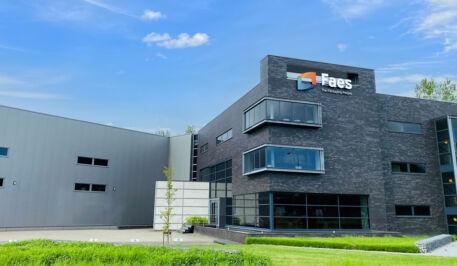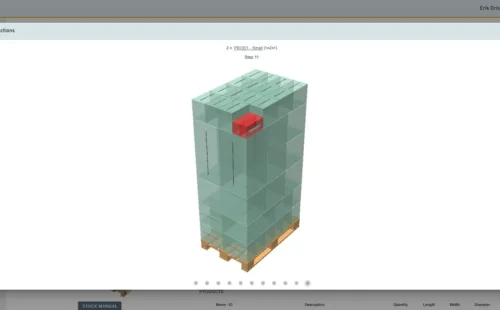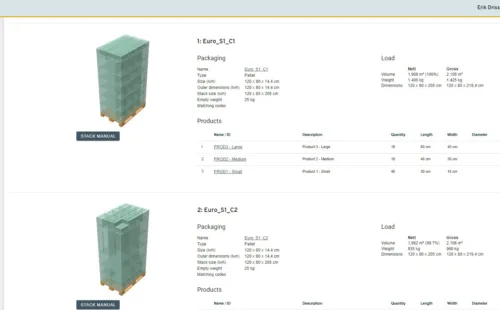Faes, a family business in industrial packaging, faced the challenge of modernising and scaling its StackAssist application. With inQdo's help, the company implemented a flexible cloud infrastructure that not only supports the application's growth but also ensures optimal availability and cost efficiency.
Faes uses the StackAssist application to help customers efficiently stack products in boxes, on pallets, and in containers. “StackAssist as an application actually emerged about ten years ago, as an additional service to our packaging portfolio”, explains Erik Drissen, product owner at Faes. Over the years, the application grew alongside customer needs. “We added customised solutions for each customer situation”, says Drissen. However, after a decade of expansions and modifications, the application risked becoming a hodgepodge of functionalities.
“About three years ago, the platform was decided to renew. We wanted to be able to add new innovations without adding patch upon patch.” The company realised that the application and the underlying infrastructure needed to be modernised to enable future growth and innovation without jeopardising service to existing customers.
Maximum scalability and flexibility
StackAssist's redevelopment required a new application layer and a modern, flexible infrastructure. Faes already had a relationship with AWS partner inQdo for their Amazon environment. Although they critically examined alternatives, inQdo was still the best choice. Drissen: “We saw no reason to leave. In terms of price-quality ratio, but also regarding communication, knowledge and expertise, inQdo remained our best choice.” inQdo implemented a serverless solution with containers running in an ECS Fargate cluster. This approach ensures maximum scalability and flexibility. Additionally, various AWS services were integrated to improve security and performance.
Efficient collaborative approach
The collaboration between Faes, inQdo and the external application developers went smoothly despite the potential challenges of a three-way relationship. Drissen praises the communication with inQdo: “Yes, they are very pleasant to work with and in their communication. Agreements are clear; they consider possibilities and what we can mean to each other. But they're also realistic, so they point out unnecessary things that could be done better or more efficiently.” Tom Bazelmans, the new IT manager at Faes, also appreciates the expertise that a party like inQdo brings: “You're bringing in experts who really know their stuff and can take the infrastructure burden off our shoulders. This allows us to focus our attention on functional aspects, together with our customers.”
Agreements are clear; they consider possibilities and what we can mean to each other.
Flexible and cost-effective
The new cloud infrastructure offers various advantages to Faes. “When we grow and get more customers, the scalability of the underlying infrastructure is prepared so that it poses no limitation whatsoever. Moreover, it's reassuring that we can always fall back on a partner specialised in AWS in specific situations.” The flexibility of the new infrastructure also enables Faes to control costs. “We've chosen not to have all our environments available 24/7. Some environments, such as the test and acceptance environments, mainly need to be available during office hours. So outside office hours, we can switch those off, which results in enormous cost savings.”
Valuable partner
The collaboration between Faes and inQdo has borne fruit. Through inQdo's technical expertise, Faes can concentrate on its core activity: developing innovative packaging solutions. The new cloud infrastructure provides the flexibility and scalability Faes needs to grow, while keeping costs manageable. Furthermore, Faes values inQdo's open communication and pragmatic advice. This combination of technical knowledge, reliability and good understanding makes inQdo a valuable partner for Faes.





